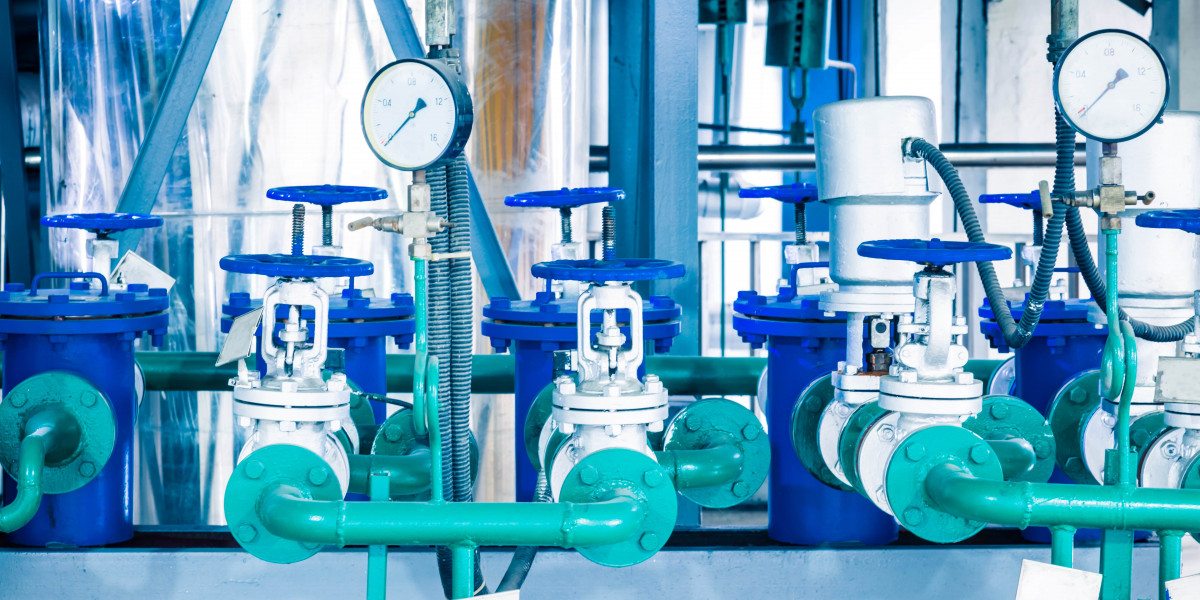Water has become one of the most valuable resources for modern cities, industries, and residential communities. As populations grow and environmental pressure increases, the need for efficient water management becomes more important. This has led to the rise of the Smart Water System, an intelligent approach that transforms how buildings monitor, distribute, and conserve water. Today, smart water technologies are no longer seen as luxuries. They are essential solutions for managing consumption, preventing water losses, and improving sustainability in corporate and residential infrastructures.
A Smart Water System brings automation, monitoring, and real time insights into water usage patterns. These systems use sensors, controllers, data analytics, and automated valves to ensure optimal water flow at all times. In the past, water management depended heavily on manual checks and conventional meter readings. This often resulted in unnoticed leaks, high wastage, inefficient consumption, and increased utility costs. With a Smart Water System, buildings can understand water usage in detail and take immediate corrective actions whenever irregularities occur.
Why Modern Buildings Need a Smart Water System
Corporate and residential buildings are complex environments where water is used for multiple purposes. Drinking water, sanitation, cooling, cleaning, landscaping, firefighting, and industrial operations all require continuous flow. Any disruption, leakage, or over consumption affects comfort, safety, and operational efficiency. A Smart Water System ensures constant monitoring of these essential functions. It helps facility managers, homeowners, and property developers maintain stable supply and quality while keeping consumption within sustainable limits. Smart water technologies also support long term environmental goals by reducing wastage and improving resource planning.
Key Components of a Smart Water System
A Smart Water System consists of advanced metering devices, flow sensors, smart valves, pressure controllers, and cloud based data platforms. Smart meters measure usage with high precision and transmit information to central monitoring dashboards. Flow sensors detect movement within pipes and can identify sudden increases that signal leaks. Pressure controllers regulate flow to ensure that water is delivered smoothly across all floors and sections of a building. Automated valves can shut off water instantly in case of an emergency. The entire system is supported by a digital platform that stores data, analyzes patterns, and provides actionable insights.
How Smart Water Systems Improve Water Efficiency
One of the greatest benefits of a Smart Water System is its ability to identify inefficiencies quickly. Real time monitoring allows users to see how much water is used in different parts of a building. Sudden spikes in consumption can indicate leakage, faulty fixtures, or misuse. By analyzing daily, weekly, and monthly trends, facility managers can identify areas where water usage can be optimized. For example, landscape irrigation can be adjusted based on weather conditions. Restroom fixtures can be upgraded to low flow devices if excessive usage is detected. Cooling systems can be calibrated for better efficiency. These improvements lead to significant water savings and cost reduction over time.
Smart Water System for Corporate Buildings
In corporate structures, water consumption often occurs at large volumes. Cooling towers, HVAC systems, sanitary systems, and cafeterias rely on continuous supply. A Smart Water System ensures high performance by preventing operational downtime caused by water related issues. Smart sensors detect early signs of pipe stress or pressure imbalance, allowing maintenance teams to take preventive action. Automated dashboards help facility managers allocate resources more efficiently and maintain compliance with sustainability standards.
Smart Water System for Residential Communities
Residential buildings, apartments, and gated communities also benefit greatly from adopting a Smart Water System. Water usage varies widely from household to household, making it difficult to manage without detailed analytics. Smart meters ensure fair billing by recording accurate consumption for each unit. Leak detection sensors protect homes from damage and unexpected water loss. Community level systems can monitor overhead tanks, underground storage, and pump operations to ensure uninterrupted availability. Smart irrigation systems can optimize water use for gardens and landscaping based on soil conditions and weather forecasts. This reduces wastage and fosters more sustainable living environments.
Role of Data Analytics in Smart Water Management
Data plays a central role in the functioning of a Smart Water System. Information collected from sensors and meters is processed to reveal patterns, inefficiencies, and opportunities for improvement. Advanced analytics help building managers understand peak consumption hours, seasonal variations, and areas where water use can be optimized. Predictive analysis can identify problems before they occur. For example, unusual pressure drops can indicate hidden leaks or blockages. High consumption during off hours may point to faulty fixtures. These insights enable proactive maintenance, reducing both wastage and repair expenses.
Benefits of Installing a Smart Water System
Water conservation is the most obvious benefit. Smart systems ensure that water is used efficiently and responsibly.
Cost savings follow naturally. Reduced wastage means lower water bills and fewer expenses on repairs.
Early leak detection prevents property damage and reduces insurance risks.
Better compliance with sustainability standards helps both corporate and residential environments meet green building guidelines.
Improved user convenience is another advantage. Residents and managers can access water usage reports through mobile apps and dashboards.
A Smart Water System also increases the value of a property by showcasing its commitment to environmental responsibility and modern infrastructure.
Smart Water Systems and Environmental Sustainability
Sustainable water management is a global priority. Water scarcity affects millions of people, and even regions with abundant supply face challenges due to climate variations and population growth. A Smart Water System supports sustainable development by promoting responsible water use and reducing the burden on natural resources. Using smart technologies helps buildings reduce their reliance on manual water control methods and adopt eco friendly practices. Smart systems encourage recycling, rainwater harvesting integration, and responsible consumption habits.
Future Trends in Smart Water Technology
The future of water management lies in deeper integration of digital technologies. Artificial intelligence based forecasting, smart irrigation control, automated leak repair systems, IoT enabled devices, and smart plumbing networks will shape the next generation of Smart Water System advancements. Cloud connected platforms will offer even more precise analytics and remote management features. Buildings of the future will rely heavily on predictive maintenance to prevent water related disruptions. As technology evolves, these systems will become easier to install, more affordable, and more widely adopted.
Conclusion
A Smart Water System is one of the most effective solutions for ensuring sustainability, efficiency, and responsible water usage in modern buildings. With advanced monitoring tools, automation, and data insights, smart water technologies help reduce costs, prevent wastage, and improve reliability. Whether for corporate infrastructures or residential communities, adopting a Smart Water System creates long term environmental and economic benefits.







